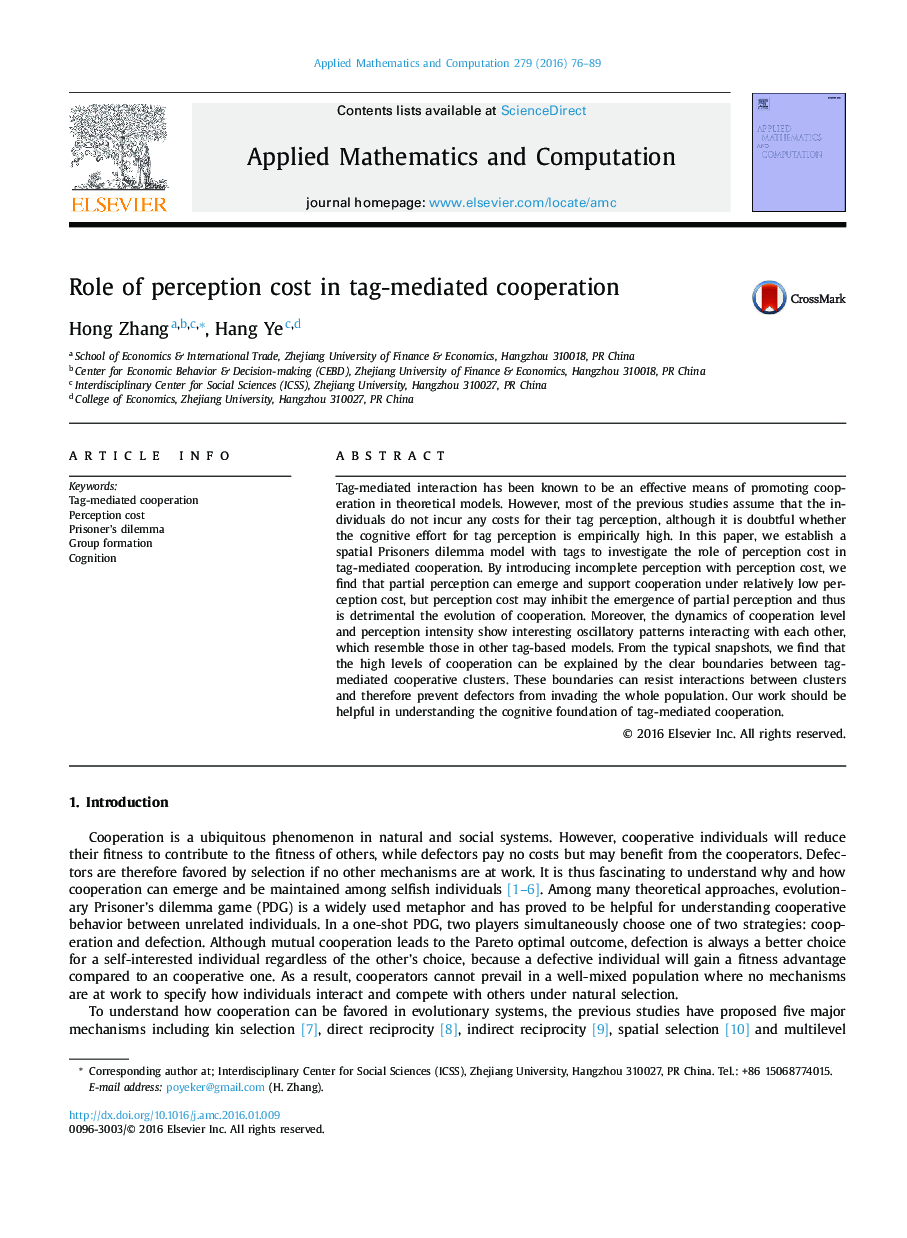| Article ID | Journal | Published Year | Pages | File Type |
|---|---|---|---|---|
| 4625922 | Applied Mathematics and Computation | 2016 | 14 Pages |
Tag-mediated interaction has been known to be an effective means of promoting cooperation in theoretical models. However, most of the previous studies assume that the individuals do not incur any costs for their tag perception, although it is doubtful whether the cognitive effort for tag perception is empirically high. In this paper, we establish a spatial Prisoners dilemma model with tags to investigate the role of perception cost in tag-mediated cooperation. By introducing incomplete perception with perception cost, we find that partial perception can emerge and support cooperation under relatively low perception cost, but perception cost may inhibit the emergence of partial perception and thus is detrimental the evolution of cooperation. Moreover, the dynamics of cooperation level and perception intensity show interesting oscillatory patterns interacting with each other, which resemble those in other tag-based models. From the typical snapshots, we find that the high levels of cooperation can be explained by the clear boundaries between tag-mediated cooperative clusters. These boundaries can resist interactions between clusters and therefore prevent defectors from invading the whole population. Our work should be helpful in understanding the cognitive foundation of tag-mediated cooperation.
